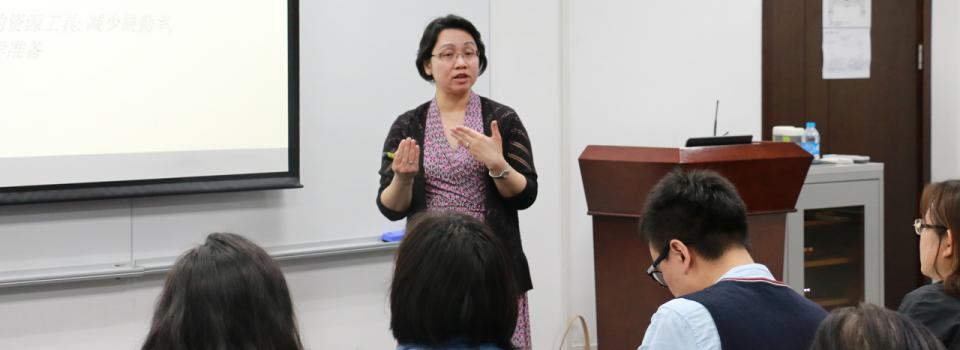Apr 21 2016
Published by
NYU Shanghai

The NYU-ECNU Institute for Social Development at NYU Shanghai (the Institute) hosted a 2-day training workshop titled “Community-based Elder Care in the U.S." from April 15-16, 2016. This was the seventh training workshop that the institute has provided since its inception. Ms. Willing Chin-Ma, Associate Executive Director of Grand ST. Settlement at New York City, was invited to provide the training, and she shared her knowledge of and skills in community-based elder care. Participants, including social work professionals from universities and elder-care agencies in China attended the workshop.
Ms. Willing Chin-Ma has held several senior leadership roles and spearheaded some of the most significant initiatives in Grand St. Settlement’s (GSS) history over the past 20 years. She currently oversees all administrative and financial affairs for two of the organization’s departments, Early Childhood and Senior Services. She also guides the organization’s core functions in the areas of capital improvements, real property management and facility maintenance, program evaluation and continuous quality improvement, and Information Technology systems.
During the 2-day workshop, building upon Ms. Chin-Ma many years of practice experience in a community organization, four integrated sessions were covered and discussed including “Innovation in nonprofit organizations: the Settlement House Model,” “Develop and measure Impact of Programs for Local Communities,” “Build Strong Strategic Partnerships and Program Governance,” and “Create Capacity and Development Plans to Raise Resources to Deliver the Mission.” Ms. Chin-Ma provided a comprehensive overview of how the 150-year-old Settlement House model in New York City has helped to create meaningful and significant community changes. One of the core principles of Settlement House model is to employ family-oriented services for all age groups from infants to the elderly. This signature service and orientation has allowed Settlement House to adapt their services to address different issues and needs in the community throughout the time of changes.
Through the workshop, the participants gained knowledge and practical tools to address the community’s pressing needs by strategizing and developing action plans, developing and conducting community needs assessment, establishing measurement metrics and outcomes, and building strategic community alliances. Using Grand St. Settlement as an example, the participants also had an opportunity to learn about organizational financial management, compliance and auditing, and fundraising for the organization to enhance partnership for sustainability. Participants shared their feedback after the workshop, emphasizing their impression in learning the community organizing models, the logic model, the importance of cultivating partnerships with diverse constituency, and financial and budget planning for a sustainable community organization.


